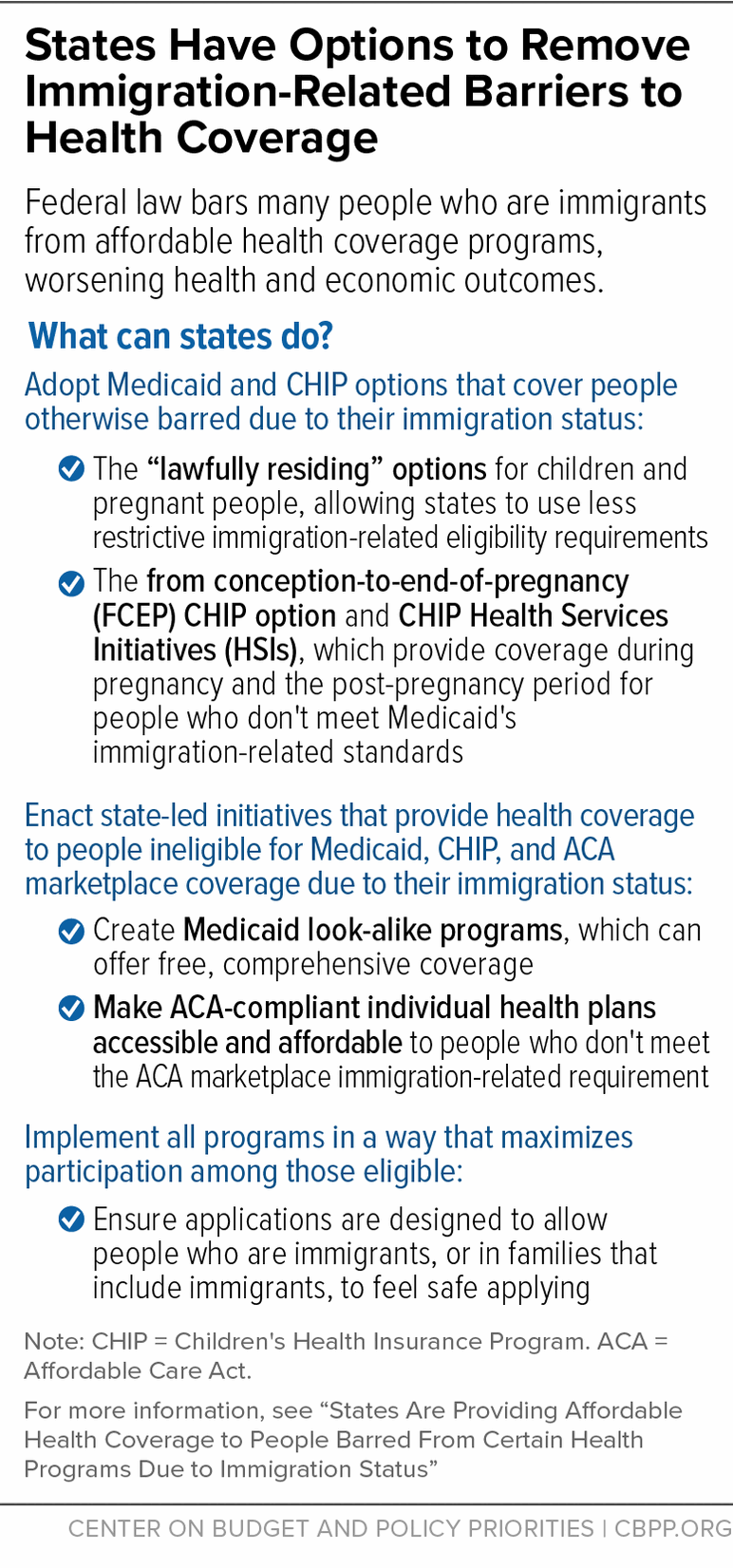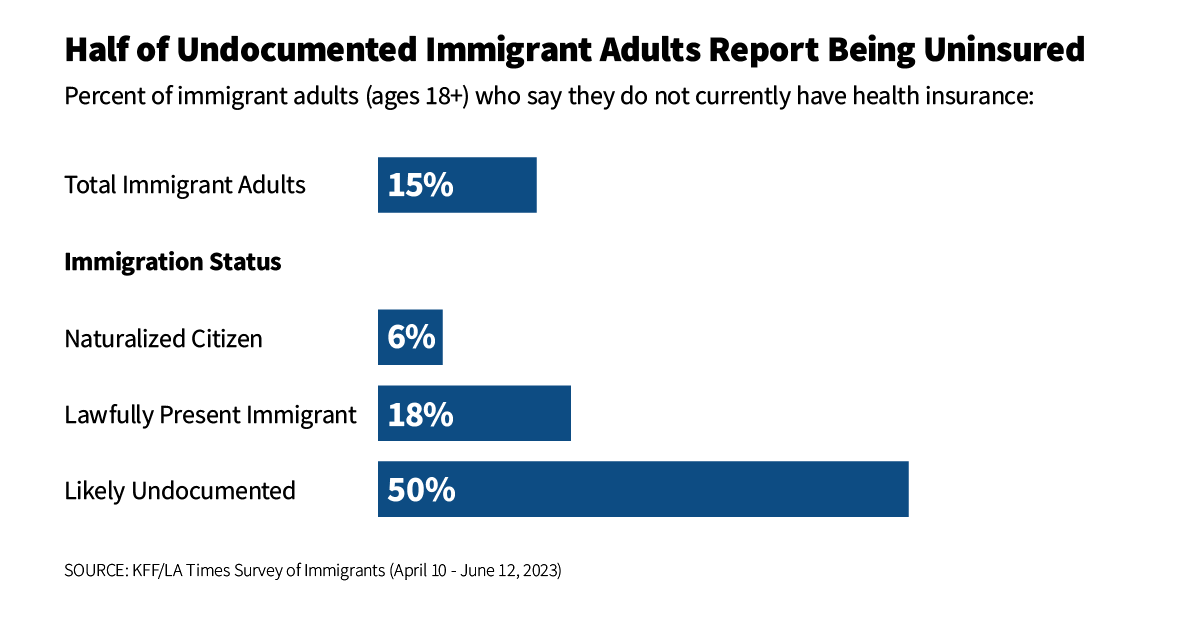How to Apply for Health Insurance: Beginner Guide
Walk through the world of health insurance can be tricky, especially if you’re an immigrant or non-citizen. You might feel overwhelmed by the paperwork, unsure of the requirements, or concerned about your eligibility.
But here’s the good news: you’re not alone, and we’re here to help. In this guide, you’ll discover clear, actionable steps to secure the health insurance you need for peace of mind and protection. Imagine the relief of knowing you and your family are covered, no matter what life throws your way.
Keep reading to uncover the secrets to simplifying this process and ensuring you make informed choices every step of the way.
Eligibility Criteria
Securing health insurance can be crucial for maintaining your well-being, especially as an immigrant or non-citizen in a new country. Understanding the eligibility criteria for health insurance is the first step in this journey. This guide will help you navigate through the essentials, ensuring you make informed decisions about your healthcare needs.
Eligibility Criteria For Immigrants
Immigrants can often apply for health insurance through various programs. The options available depend on your immigration status. Generally, lawful immigrants can access insurance plans through the Marketplace. This includes those with work visas, student visas, and other lawful statuses.
Eligibility For Non-citizens
Non-citizens, including those without legal status, have different pathways. Some states offer programs for children and pregnant women, regardless of status. Emergency Medicaid may also be available for urgent care needs.
Residency Requirements
To qualify for most health insurance plans, you must meet certain residency requirements. This means you need to live in the state where you’re applying for insurance. Proof of residency might include utility bills or rental agreements.
Income Level Considerations
Your income level can impact your eligibility for certain programs. Many insurance options require you to fall within specific income brackets. For example, Medicaid eligibility is often determined by your household income relative to the federal poverty level.
Documentary Evidence Needed
When applying for health insurance, you’ll need to provide various documents. These may include:
- Proof of identity, such as a passport or ID card.
- Evidence of immigration status, like a visa or green card.
- Proof of income, including pay stubs or tax returns.
Table: Common Eligibility Requirements
| Criteria | Description |
|---|---|
| Immigration Status | Lawful status required for most plans. |
| Residency | Must reside in the state of application. |
| Income Level | Varies by program, often tied to poverty level. |
Understanding these criteria helps you find the right insurance. It ensures access to healthcare without unnecessary stress. Remember, each state may have different rules, so checking local resources can be beneficial.

Credit: www.cbpp.org
Types Of Health Insurance
Applying for health insurance as an immigrant or non-citizen can be a daunting task. Understanding the types of health insurance available is crucial. These options are designed to cater to different needs and circumstances. Choosing the right one helps ensure you receive adequate medical coverage. There are generally two types of health insurance: public and private. Each has its own set of benefits and requirements.
Public Options
Public health insurance options are often government-funded and provide coverage to a broad range of individuals. For immigrants or non-citizens, several programs might be available depending on your residency status and income level. These programs aim to offer affordable healthcare to those who may not have access to private insurance.
Some common public options include:
- Medicaid: Available to low-income individuals and families. Eligibility varies by state. Some states offer Medicaid to immigrants under specific conditions.
- Children’s Health Insurance Program (CHIP): Provides coverage for children in families with incomes too high for Medicaid but too low for private insurance.
- State Health Insurance Exchanges: These are marketplaces where you can compare and purchase health plans. Some states offer plans specifically for immigrants.
It’s important to check your state’s specific guidelines. They determine eligibility based on factors like income and residency. Many states have additional programs tailored for immigrants and non-citizens. These might include access to community health clinics or special assistance programs. Always consider reaching out to local health departments for more detailed information.
Private Options
Private health insurance is typically offered by insurance companies. These plans come in various forms and cover a wide range of services. Immigrants and non-citizens often have access to private insurance through employment or individual plans.
Types of private insurance include:
- Employer-Sponsored Insurance: Many companies offer health insurance as a part of employee benefits. This is often a convenient and cost-effective way to obtain coverage.
- Individual Health Plans: Purchased directly from insurance providers. These plans offer flexibility in coverage options but can vary widely in cost.
- Family Health Plans: Cover entire families, offering a comprehensive package for all members.
When choosing private insurance, consider your healthcare needs. Compare different plans to find the one that best suits your situation. Look for plans that cover essential services like doctor visits, hospital stays, and prescriptions. It’s also wise to review the terms and conditions carefully. This ensures you understand your coverage and any potential limitations.
Gathering Necessary Documents
Applying for health insurance as an immigrant or non-citizen can be a daunting task. Navigating through the requirements and paperwork may seem overwhelming. Gathering necessary documents is crucial for a successful application. This ensures you have everything ready when applying and avoid delays. With proper preparation, you can simplify the process significantly.
Identification
Identification is the first step in gathering documents for health insurance. You need to prove who you are with official documents. This is crucial for verifying your identity and ensuring you receive the right coverage.
Below are some common identification documents:
- Passport: An internationally recognized form of identification.
- Driver’s License: Useful if you have one from the country you are residing in.
- State ID Card: A good option for those without a driver’s license.
Make sure these documents are up-to-date and accurate. Expired IDs can cause issues during your application. Keep copies of these documents in a safe place. This ensures you have them ready when needed.
Immigration Status
Your immigration status needs to be documented properly. This determines eligibility for health insurance programs. Different statuses have different requirements. Understanding what applies to you is key.
Here are common documents for proving immigration status:
| Document Type | Description |
|---|---|
| Green Card | Proof of permanent residency. |
| Visa | Shows current immigration status and duration. |
| Employment Authorization Document | Allows work in the country, verifying legal presence. |
Ensure these documents are current and valid. Incorrect or expired documents can lead to application rejection. Organize these papers ahead of time. This avoids hassle and confusion during the application process.
Income Verification
Income verification is vital for health insurance applications. It determines the type of coverage you qualify for. Gathering these documents ensures you meet financial requirements for insurance programs.
Consider these income verification documents:
- Pay Stubs: Shows your earnings and employment status.
- Tax Returns: Provides a comprehensive look at yearly income.
- Bank Statements: Reflects regular deposits and financial health.
Keep these documents organized and updated. Accurate income information speeds up the application process. Incomplete or incorrect data can delay your coverage. Double-check all details before submitting them with your application.
Application Process
Applying for health insurance as an immigrant or non-citizen can seem complex. Yet, it is essential for securing healthcare access. The process involves several steps, and understanding each one makes it easier. You can apply online, in person, or with help from assistance programs. Each method has its own steps and benefits. Let’s explore these options in detail.
Online Applications
Online applications offer a convenient way to apply for health insurance. You can complete the process from your home. Most health insurance marketplaces have user-friendly websites. These sites guide you through the application step-by-step.
Here are some general steps to follow:
- Create an account on the health insurance marketplace website.
- Provide your personal information, such as name, address, and immigration status.
- Submit required documents to verify your eligibility. This might include work permits or visas.
- Select a suitable health plan based on your needs and budget.
- Review and submit your application.
Many websites offer support through live chat or phone. This ensures that applicants can get help if needed. Some platforms even have language support for non-English speakers.
In-person Applications
Some prefer in-person applications for personal interaction. This method allows you to speak directly with a representative. They can guide you through the process and answer questions.
To apply in person, follow these steps:
- Locate a nearby enrollment center or community health center.
- Bring necessary documents. These include identification, proof of income, and immigration documents.
- Meet with a representative who will assist you in filling out the application.
- Review your health plan options with the representative.
- Submit your application for processing.
In-person applications provide a personal touch and immediate feedback. They also offer language support in many locations, which can be a relief for non-English speakers.
Assistance Programs
Assistance programs help immigrants and non-citizens apply for health insurance. These programs offer guidance throughout the application process. They cater to those who may face language or technology barriers.
Some popular assistance programs include:
- Navigator Programs: These programs provide trained individuals to help applicants understand their options and complete applications.
- Community Health Centers: These centers often have staff who speak various languages and can assist with applications.
- Non-Profit Organizations: Many non-profits focus on helping immigrants access health care and insurance.
These programs are free and cater to specific community needs. They aim to ensure everyone can access health insurance, regardless of their background or language skills.
Common Challenges
Applying for health insurance as an immigrant or non-citizen can be daunting. There are many hurdles one might face during this process. These challenges can range from language barriers to navigating complex policies. Understanding the benefits offered is also crucial but often difficult. Let’s explore these common challenges and how to overcome them.
Language Barriers
Language barriers are a significant challenge for many immigrants. Understanding insurance terms can be difficult if English is not your first language. Here are some common issues faced:
- Complex terminology: Insurance documents often use complicated language.
- Lack of translation: Not all forms or websites offer translations.
- Miscommunication: Speaking with insurance agents may lead to misunderstandings.
Solutions to overcome language barriers include:
- Using translation services: Many organizations offer free translation services.
- Seeking bilingual assistance: Find an insurance agent who speaks your language.
- Online tools: Use online translators to understand written materials.
Navigating Policies
Understanding insurance policies can be overwhelming. Policies often contain complex legal language that is hard to decipher. Here are some challenges immigrants face:
- Variety of plans: There are numerous plans with different coverage options.
- Legal jargon: Policies are filled with legal terms that can be confusing.
- Eligibility requirements: Understanding who qualifies for what can be perplexing.
To navigate policies more effectively:
- Research thoroughly: Take time to read about different plans.
- Consult professionals: Seek advice from insurance experts.
- Attend informational sessions: Join workshops that explain policy details.
Understanding Benefits
Understanding the benefits of a health insurance plan is crucial. Many immigrants struggle to grasp what their policy covers. Key challenges include:
- Scope of coverage: Knowing what services are covered can be confusing.
- Cost implications: Understanding out-of-pocket costs and deductibles.
- Access to services: Figuring out which healthcare providers are in-network.
To better understand benefits, consider these strategies:
| Strategy | Description |
|---|---|
| Read benefit summaries: | These documents provide a quick overview of coverage. |
| Ask detailed questions: | Contact customer service for clarification on benefits. |
| Utilize online resources: | Websites often have detailed explanations of plan benefits. |
Resources And Support
Applying for health insurance as an immigrant or non-citizen can be challenging. But you are not alone. Many resources and support systems are available to help you navigate this process. Understanding where to find help is crucial. This section will guide you through different resources, including community organizations, government websites, and hotlines. These options can make applying for health insurance easier and less stressful.
Community Organizations
Community organizations play a vital role in helping immigrants and non-citizens. They offer guidance and support to understand health insurance options. These organizations often have staff who speak multiple languages. This makes communication easier.
Here are some benefits of community organizations:
- Language Support: Many offer services in your native language.
- Personalized Assistance: They provide one-on-one help to understand forms and processes.
- Workshops and Seminars: Learn about health insurance through free educational events.
Consider visiting local community centers or immigrant support groups. They often have partnerships with health insurance providers. These partnerships can simplify the application process. Below is a table of some well-known organizations:
| Organization | Services Offered |
|---|---|
| Immigrant Resource Center | Language support, insurance application assistance |
| Community Health Partners | Free workshops, health screenings |
Government Websites
Government websites are a reliable source of information. They offer up-to-date details about health insurance options for immigrants. These sites are often user-friendly and provide information in multiple languages.
Here’s what you can find on government websites:
- Eligibility Criteria: Understand who qualifies for different programs.
- Application Guidelines: Step-by-step instructions to apply for health insurance.
- FAQs: Common questions answered clearly.
Visit the official health department website in your area. It will have the most accurate and current information. Use the search feature to find specific topics quickly. This ensures you get the help you need without delay.
Hotlines And Help Centers
Hotlines and help centers offer immediate assistance. If you have questions or need guidance, these resources are invaluable. They provide direct access to experts who can help with your concerns.
Here are some benefits of using hotlines:
- Immediate Assistance: Get answers to your questions in real-time.
- 24/7 Availability: Many hotlines are available around the clock.
- Confidential Support: Speak openly about your situation without fear.
Make a note of key hotlines related to health insurance. Keep them handy for quick access. These hotlines can guide you through the application process, help with documentation, and ensure you understand your options.
Maintaining Coverage
Applying for health insurance as an immigrant or non-citizen can be challenging. Once you have your coverage, maintaining it is crucial. Understanding how to keep your insurance active ensures you can access healthcare when needed. Let’s explore the steps to maintain your health insurance coverage effectively.
Renewal Process
Renewing your health insurance is vital to avoid any lapse in coverage. Each year, insurance plans require renewal. Here’s how you can ensure a smooth renewal process:
- Check Renewal Notices: Insurers usually send renewal notices. Keep an eye on your mail or email for these reminders.
- Update Information: Make sure all your details are current. This includes your address and contact information.
- Review Plan Options: Plans may change yearly. Compare your current plan with new offerings to ensure it still meets your needs.
- Submit Documents on Time: Provide any required documents before the deadline to avoid coverage interruption.
Sometimes, you might want to change plans during renewal. It’s a good idea to look at different options. Use the renewal period to evaluate your needs and budget. This way, you can choose the best plan for you.
Changes In Status
Life changes can affect your health insurance. It’s important to report any changes in your status to maintain your coverage. Here are some common changes you might need to report:
| Status Change | Action Required |
|---|---|
| Marriage or Divorce | Update marital status in your insurance profile. |
| Birth of a Child | Add the child to your policy. |
| Change in Immigration Status | Submit new documentation if your immigration status changes. |
These updates ensure your insurance reflects your current situation. Always report changes within the specified time frame. Failing to do so can impact your coverage eligibility.
Reporting Income Changes
Income changes can affect your health insurance premiums and eligibility for subsidies. Keeping your income information up-to-date is crucial. Here’s what you need to know:
- Identify Income Changes: Recognize any changes in your income. This includes a new job, a raise, or job loss.
- Report Promptly: Notify your insurance provider as soon as your income changes. Use online portals or customer service for quick updates.
- Submit Proof: You might need to provide documents like pay stubs or tax returns.
- Review Subsidies: Changes in income can affect your eligibility for subsidies. Make sure to check if you qualify for new benefits.
Regularly reviewing your income and updating it helps in maintaining the correct premium rates. This ensures you pay only what is necessary and retain your health insurance benefits.

Credit: www.kff.org

Credit: www.kff.org
Frequently Asked Questions
Can Immigrants Get Health Insurance?
Yes, immigrants can get health insurance in the U. S. Options include employer-sponsored plans, ACA Marketplace, and Medicaid. Eligibility depends on immigration status and state residency. Non-citizens should review specific requirements for each program. It’s crucial to compare plans and understand coverage options to make informed decisions about healthcare.
What Documents Do Immigrants Need For Insurance?
Immigrants need specific documents for health insurance. Typically required are proof of identity, immigration status, and income. Common documents include green cards, work permits, and tax returns. Each insurance provider may have different requirements. It’s essential to verify with the specific insurer for a complete list of needed documents.
Are Non-citizens Eligible For Medicaid?
Non-citizens may be eligible for Medicaid if they meet certain criteria. Eligibility varies by state and usually requires lawful immigration status. Some states offer Medicaid for undocumented children and pregnant women. It’s important to check state-specific rules and consult with Medicaid offices for precise eligibility information.
How Does Immigration Status Affect Insurance Options?
Immigration status significantly affects available insurance options. Lawful permanent residents can access more programs than undocumented immigrants. Some states offer special programs for specific immigrant groups. Understanding your immigration status helps in determining eligibility and finding the best insurance option for your needs.
Conclusion
Navigating health insurance as an immigrant can be challenging. But it’s possible. Start by understanding the basics. Gather necessary documents like identification and income proof. Research different options available to you. Many programs offer assistance for non-citizens. Contact local health agencies for guidance.
They can provide valuable insights. Remember, staying informed is key. Your health matters, so take the time to explore your options. With the right steps, securing health coverage becomes manageable. Stay proactive, ask questions, and seek support when needed. Your well-being is worth the effort.



